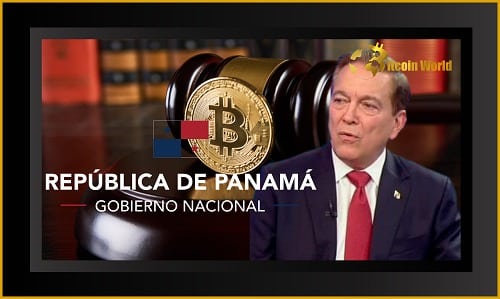The path to cryptocurrency regulation isn’t always smooth. Just ask Panama. While there was initial excitement about the country potentially becoming a new hub for digital assets, a recent development has put a pause on those ambitions. Panama’s President, Laurentino Cortizo, has partially vetoed the much-anticipated crypto bill, sending it back for further review. What exactly happened, and what does this mean for the future of crypto in Panama?
Why the Hesitation? Unpacking the President’s Veto
After the National Assembly gave the crypto bill the green light in April 2022, it seemed like Panama was on the verge of joining the ranks of crypto-friendly nations. However, President Cortizo raised concerns about anti-money laundering measures, leading to the partial veto. Let’s break down the key reasons behind this decision:
- Anti-Money Laundering Concerns: This was the primary sticking point. President Cortizo emphasized the need for the bill to align with international standards, particularly those set by the Financial Action Task Force (FATF).
- Financial Standards Alignment: The President stressed the importance of ensuring the crypto regulations are in sync with Panama’s existing financial framework.
- Fiscal Transparency: According to the veto document, adapting to FATF’s norms on fiscal transparency is crucial.
In essence, while acknowledging the innovative aspects of the bill, President Cortizo wants to ensure Panama’s financial system remains robust and compliant with global regulations. He even referred to the bill as an “innovation law” previously, indicating his openness to the idea but with necessary safeguards.
What Exactly Did the President Say?
The President’s official statement, detailed in a 32-page veto document acquired by local media, highlights the “imperative” need for cryptocurrency laws to adapt to FATF’s guidelines. This focuses on “fiscal transparency and prevention of money laundering.” It’s clear that while supportive of the technological advancements, the government prioritizes preventing illicit financial activities.
A Setback or a Necessary Step? Reactions to the Veto
The President’s decision has sparked mixed reactions. Congressman Gabriel Silva, a key figure in introducing the bill, expressed his disappointment on Twitter, calling it “a missed opportunity to produce jobs, attract investment, and embrace technology and creativity in the public sector.”
He further stated, “The country deserves more chances and financial inclusion,” signaling the potential benefits he believes the crypto bill could bring. However, he also acknowledged that Congress will review the veto and work on amendments before further debate.
Panama’s Crypto Ambitions: A Comparison to El Salvador
It’s hard not to draw comparisons to El Salvador, which famously became the first country to adopt Bitcoin as legal tender. If the Panamanian bill were to be signed, it would position the country as the second in Central America to regulate cryptocurrency spending. This highlights the growing interest in digital assets within the region.
What Happens Next? The Future of Crypto Regulation in Panama
So, where does Panama go from here? Here’s a glimpse into the potential next steps:
- Congressional Review: The National Assembly will now examine President Cortizo’s veto and the reasons behind it.
- Amendments and Revisions: Based on the President’s concerns, lawmakers will likely work on revising the bill to incorporate stronger anti-money laundering provisions.
- Further Debate: Once amended, the bill will likely be debated again in the National Assembly.
- Potential for Passage: With the necessary adjustments, there’s still a possibility that a revised version of the crypto bill could be passed and signed into law.
Key Takeaways: What Does This Mean for You?
For those following the crypto space, particularly in Latin America, this development offers several key insights:
- Regulation is Complex: Navigating the regulatory landscape for cryptocurrencies is a multifaceted challenge for governments worldwide.
- Global Standards Matter: International bodies like FATF play a significant role in shaping crypto regulations.
- Balancing Innovation and Security: Governments are grappling with how to foster innovation in the digital asset space while mitigating risks like money laundering.
- Patience is Key: The journey towards comprehensive crypto regulation is often iterative and involves setbacks.
Conclusion: Panama’s Crypto Journey Continues
While the partial veto of the crypto bill might feel like a step back, it’s perhaps more accurately described as a strategic pause. President Cortizo’s actions underscore the importance of responsible regulation that aligns with international standards. The desire to embrace the potential of cryptocurrency in Panama remains, but with a clear emphasis on ensuring financial integrity and preventing illicit activities. The conversation is far from over, and the coming months will be crucial in shaping the future of crypto in Panama. Keep an eye on this developing story!
Disclaimer: The information provided is not trading advice, Bitcoinworld.co.in holds no liability for any investments made based on the information provided on this page. We strongly recommend independent research and/or consultation with a qualified professional before making any investment decisions.




